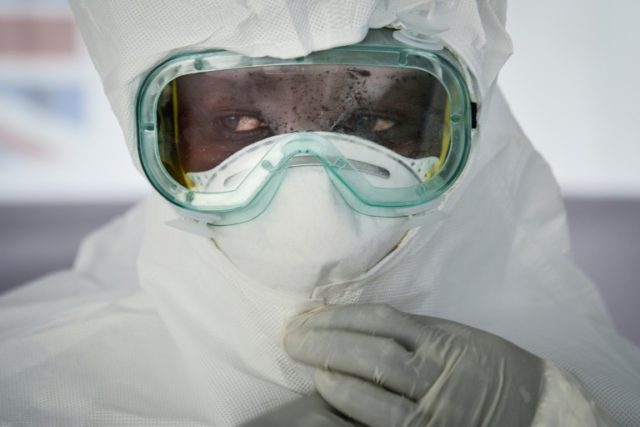A five-year-old child in Uganda succumbed to the Ebola virus on Wednesday, marking the first cross-border lethal case of the disease since the outbreak began in the neighboring Democratic Republic of Congo (DRC) last year.
BBC reports:
A five-year-old boy in Uganda has died from Ebola, health officials have said.
The death is the first in Uganda, amid a deadly outbreak in the neighboring Democratic Republic of Congo. Officials said his grandmother and younger brother also had the disease.
The Ugandan government is now reporting seven suspected cases of Ebola.
The boy is said to have traveled across the border with his family from DR Congo on Sunday.
Uganda’s Health Ministry reportedly confirmed late on Tuesday that the child tested positive for Ebola.
“It was not immediately clear how the family members were able to cross the border, where millions of travelers have been screened for Ebola since the outbreak began. WHO [World Health Organization] has advised against travel restrictions,” the Associated Press (AP) reports.
Ebola’s spread to Uganda came to the detriment of international efforts by health workers, who for months have risked their lives to prevent contamination beyond the DRC, AP notes, later adding:
The announcement [of the case in Uganda] puts new pressure on the World Health Organization to declare the Ebola outbreak — the second-deadliest in history — a global health emergency. The epidemic is unfolding amid unprecedented challenges of rebel attacks and community resistance in a region that had never experienced Ebola before.
In April, WHO officials determined that the Ebola outbreak, while of “deep concern,” did not yet constitute a global health emergency. Nevertheless, spread beyond one country is one of the major criteria the U.N. agency considers before making such a declaration.
DRC residents are also reeling from a measles outbreak that may complicate the Ebola response, the United Nations noted on May 27.
On January 10, the DRC government officially declared a measles outbreak in the African country.
“There have already been 95,335 suspected [measles] cases notified since the beginning of 2019, including 1,562 deaths. 23 out of the 26 provinces in the DRC are affected. [Eighty-three] health districts out of 512 have already confirmed the epidemic,” the European Union’s humanitarian aid agency reports, echoing the Doctors Without Borders non-governmental organization (NGO), known as MSF for its acronym in French.
MSF notes:
Measles is a highly contagious viral disease for which no treatment exists. The only way to prevent the spread of measles is through vaccination.
The measles epidemic in DRC is likely to be the deadliest since the disease made a strong resurgence in the country in 2011-2012. In the first five months of 2019, more than 1,500 measles-related deaths were officially recorded, accounting for nearly 75 percent of the total number of deaths recorded throughout 2012 during the deadliest epidemic of the last decade.
The DRC is facing an “unprecedented combination” of epidemics, including cholera, measles, and Ebola, the United Nations declared at the end of last month.
According to the WHO, there have been over 2,000 confirmed and probable cases of the Ebola virus in the DRC between August 2018 and January 10, with nearly 1,400 fatalities, including 1,302 deaths confirmed to be linked to the disease and 94 probable ones.
Ebola is primarily spread through contact with the bodily fluids of infected individuals.
MSF officials called for a massive mobilization of national and international resources to help fight the measles epidemic in the DRC.
Health workers are not only risking their lives at the hands of deadly diseases but also from DRC villagers who distrust outsiders.
Since the Ebola outbreak began in the DRC in August 2018, residents of the African country have reportedly killed at least four people and injured dozens of others, including patients.
Citing WHO, AP reported on May 3 that “85 health workers have been wounded or killed” in more than 40 attacks on health centers.
Residents of the DRC — where Ebola was first observed in 1976 and named after a local river — are facing the largest ever recorded Ebola epidemic in the African country.
The Ebola outbreak plaguing the DRC is the second largest worldwide after the disease claimed the lives of more than 11,300 people in West Africa between 2014 and 2016.

COMMENTS
Please let us know if you're having issues with commenting.